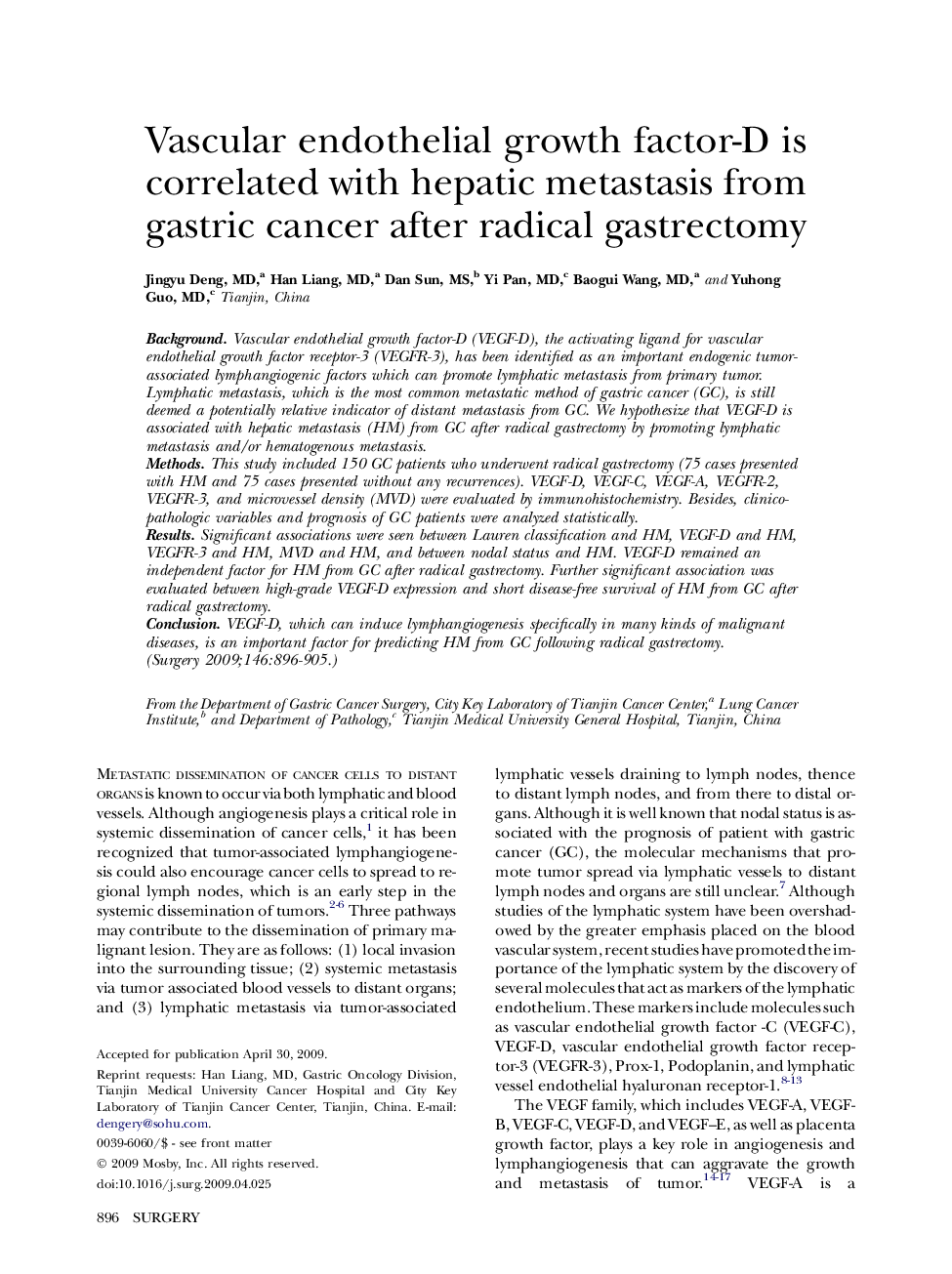| Article ID | Journal | Published Year | Pages | File Type |
|---|---|---|---|---|
| 4309422 | Surgery | 2009 | 10 Pages |
BackgroundVascular endothelial growth factor-D (VEGF-D), the activating ligand for vascular endothelial growth factor receptor-3 (VEGFR-3), has been identified as an important endogenic tumor-associated lymphangiogenic factors which can promote lymphatic metastasis from primary tumor. Lymphatic metastasis, which is the most common metastatic method of gastric cancer (GC), is still deemed a potentially relative indicator of distant metastasis from GC. We hypothesize that VEGF-D is associated with hepatic metastasis (HM) from GC after radical gastrectomy by promoting lymphatic metastasis and/or hematogenous metastasis.MethodsThis study included 150 GC patients who underwent radical gastrectomy (75 cases presented with HM and 75 cases presented without any recurrences). VEGF-D, VEGF-C, VEGF-A, VEGFR-2, VEGFR-3, and microvessel density (MVD) were evaluated by immunohistochemistry. Besides, clinicopathologic variables and prognosis of GC patients were analyzed statistically.ResultsSignificant associations were seen between Lauren classification and HM, VEGF-D and HM, VEGFR-3 and HM, MVD and HM, and between nodal status and HM. VEGF-D remained an independent factor for HM from GC after radical gastrectomy. Further significant association was evaluated between high-grade VEGF-D expression and short disease-free survival of HM from GC after radical gastrectomy.ConclusionVEGF-D, which can induce lymphangiogenesis specifically in many kinds of malignant diseases, is an important factor for predicting HM from GC following radical gastrectomy.
